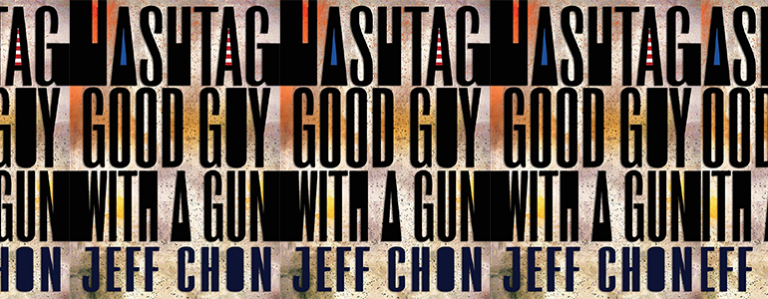Relationship Rescue! Courting Your Long-Lost Writing
First, a confession: I’m lousy at prioritizing fiction writing. I let everything else in my life take precedence. I even let other writing take precedence—articles, book reviews, syllabi, comments on student work, status updates, replies to all.
And yet, good things have happened to the fiction I’ve written. I know a lot about fiction and how other people craft it. I teach fiction writing. My credentials suggest that I have a committed relationship to fiction writing.
But my fiction writing is tired of this charade. Frankly, it’s had it with my excuses. It’s given me an ultimatum: put fiction writing first, or watch it leave for good.
Can this marriage be saved? Fortunately, yes: I’ve rescued my relationship. If your writing has you in the doghouse, this may be the post for you.
The On-Again, Off-Again Writing Relationship
The first step in relationship rescue, according to Dr. Phil, is getting real—being brutally candid about your behavior. So here’s another confession: my departures from writing fiction have been utter and prolonged—six years the first time, eight years the second time.
I know. I’d leave me forever, too.
There are lots of reasons we leave writing, and thankfully, mine are happy: personal changes (marriage, parenthood) and an academic career (graduate programs, professorship). In an interview, Susan Sontag says, “I’ve seen academic life destroy the best writers of my generation.” I wouldn’t label my condition “destroyed”; it’s more like “glutted.” Teaching is deeply enriching. Stuffed with other people’s writing—without exercising my own—I became like those futuristic humans in the movie WALL-E: immobilized.
Departures are departures; I’m here to help you with returns. I’m also here to soothe your worried brow for those long stretches when you, too, might leave your writing. Consider me a helmeted messenger from Your Future: you can find your way back.
Getting Real About Not-Writing
After eight years without a single page, my fiction writing doubted my commitment. Oh, you’re back now? it sneered. Then it turned to gaze out of a window, spiting me with clichés.
I pleaded: Baby, during all those years, it’s not like fiction writing wasn’t on my mind! I mean, I talked about writing fiction at book clubs and readings. I thought about writing fiction as I reviewed books. I theorized about fiction writers’ choices during class discussions. I edited, planned courses around, and commented upon fiction!
Plus, I bought special writing outfits for our reunion: fleecy tights, fashionable sweatshirts— look, a Snuggie!
That’s almost like writing fiction, isn’t it?
Are you there?
My fiction writing doesn’t accept that not-writing is writing. Of course, writers take breaks all the time, fluctuating between stages of input and output. Departures, even extended ones, are not, in and of themselves, “bad.” The problem lies in conflating the supplement with the substance, as I did for years. Analyzing fiction writing satisfied my urgency to produce it. And getting intellectual is not getting real.
Here’s why, according to E.L. Doctorow: “Writing is an exploration. You start from nothing and learn as you go. If you do it right, you’re coming up out of yourself in a way that’s not entirely governable by your intellect. That’s why the most important lesson I’ve learned is that planning to write is not writing. Outlining a book is not writing. Researching is not writing. Talking to people about what you’re doing, none of that is writing. Writing is writing.”
How To Court Your Writing and Win it Back For Good!
So I got real. I recommitted. Turns out, there was more to do. Here’s how you can rescue your own writing relationship.
1. Drop Your Baggage. Returning to anything creates worry: what if it’s dried up, or unrecognizable, or spiders have moved in? Pressure abounds: If your work was successful, will it be once more? Plus, it’s been years: you’d better crank out something perfect right away.
First, reframe your writing relationship. Imagine you’re bringing your long-lost writing to your family’s house for dinner. Sure, you’ll spout chestnuts about that One time we pulled two all-nighters to write that workshop story!, and your sister will smirk at your it’s-for-real-this-time promises. But your life has changed during your departure. You’re not that child/sibling/cousin/writer everyone thinks they know.
Guess what? Neither is your long-lost writing.
As Doctorow says above, “you start from nothing”—including your own history. Forget about publication, audiences, book contracts, that thing you always used to do to get into the mood. Don’t pre-judge; don’t pre-blurb. Just be receptive.
2. Make Some Magic. Initially focused on output, I micromanaged word counts. This was a mistake. I forced myself sit and type for two hours a day; I failed. I took up ancient, half-done stories; I failed. I tried writing my new novel; I failed.
I’d given my writing structure and goals, but not a bit of pleasure. It was time to make some magic. Like literally, magic: some enchantment to trick me into the hard, dull work of writing.
So I made space for serendipity. A link on “ghost mothers” in 19th century photographs led to images of Victorian post-mortem photography. I made prompts: I wrote 50 words on paper slips and placed them in a box. I drew the word “backwards.” Immediately, I heard the voice of a sister dressing her dead sibling for a portrait. I finished one story and wrote another. By the time I was puzzling how you’d make a death mask in a hotel room in 1958, word count pressures disappeared, as did the clock.
The new pieces were like nothing I’d ever written; they had nothing to do with my writing goals. Yet through them, I found my writing to be charming, mysterious, and wholly irresistible.
3. Focus On the Little Things. My first finished pieces were tiny. But my big goal (a novel) had to be preceded by a little goal: completing fiction of any size. Here’s how I reached this epiphany:
Me, whining: “I get ten pages into a story and then I’m stuck!”
My husband, a poet: “So why don’t you just write ten-page stories?”
A-ha!
Setting an upward limit—1,000 words, a single sentence—added both intensity and the likelihood of completion. It also felt subversive, since my goal is a novel. If you’re worried about publication, note that many venues encourage short-shorts, including one-sentence stories and six-word memoirs.
4. Be Exclusive. I’m compartmental, so it was nice to realize that the kind of absorption that once excluded my writing could be used to rescue it. How? I created new compartments just for writing, like these:
Writing-Only Locations. I live with many people and animals; to produce, I often leave home. My campus office hums with years of panicked course-prep and distractions. I had to find a space I’d never used for another activity.
Where I once fussed over color palettes and lumbar support, I’ve now learned to write in coffee shops, lobbies, anywhere I can use headphones. I also rented a study room at our campus library— a tiny, barren, and windowless space used exclusively for writing.
Writers find ways to produce on their commutes, in closets, while they wait out their kids’ piano lessons, within painful confinements. I finally realized that, unlike lugging around a cello or dance floor, writing is portable.
A Writing-Only Twitter Account. On Twitter, I follow only writers, journals, and publishers. My account is devoid of teaching, parenting, politics, and television— except for the tweets of writer Roxane Gay (who herself has multiple accounts).
Not long ago, I thought Twitter was just a giant high school lunchroom full of people shouting #inanities. But used exclusively for writing, it’s offered inspiration, calls for submissions, and for some, a sense of accountability: one friend routinely Twitter-challenges herself and others to “1 hour and a thousand words” of writing.
Altogether, these new practices led to my first published story in years: 500 words, written in a coffee shop, submitted to a contest I discovered via Twitter, and guided by a prompt that gave me room to play.
And so…what, dear? My fiction writing is tugging at my Snuggie, asking, Is this blog post fiction writing? Obviously, it’s not. So, readers, why don’t you describe your writing reunions below? Because I’ve got to go. I have a date.


